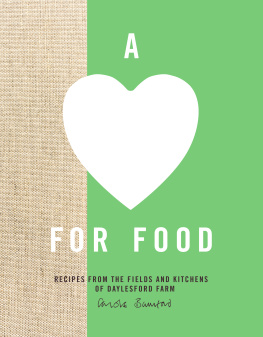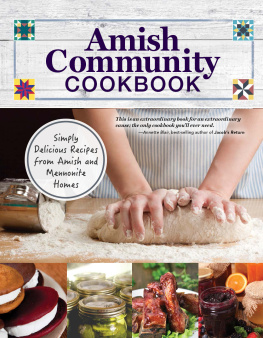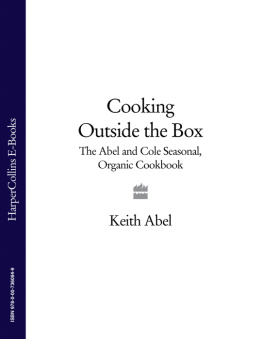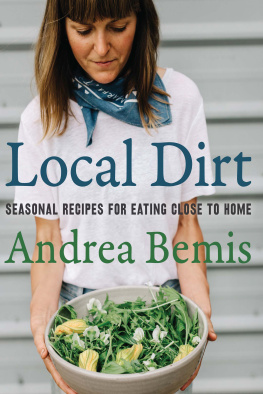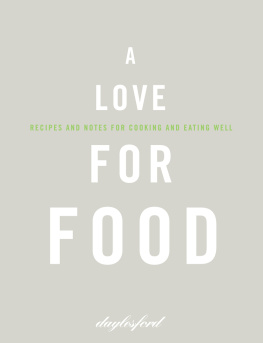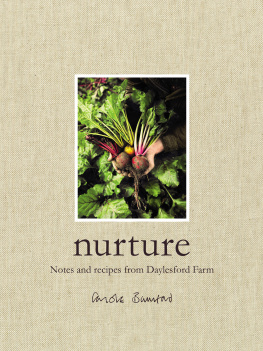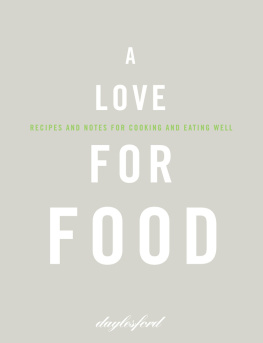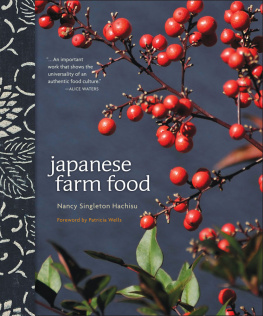A LOVE FOR FOOD
RECIPES FROM THE FIELDS AND KITCHENS OF DAYLESFORD FARM
Carole Bamford

This ebook is copyright material and must not be copied, reproduced, transferred, distributed, leased, licensed or publicly performed or used in any way except as specifically permitted in writing by the publishers, as allowed under the terms and conditions under which it was purchased or as strictly permitted by applicable copyright law. Any unauthorized distribution or use of this text may be a direct infringement of the authors and publishers rights and those responsible may be liable in law accordingly.
VINTAGE
20 Vauxhall Bridge Road,
London SW1V 2SA
Vintage is part of the Penguin Random House group of companies whose addresses can be found at global.penguinrandomhouse.com .

Text copyright @ Carole Bamford 2020
Photography Sarah Maingot
Except photographs on by Britt Willoughby Dyer
Carole Bamford has asserted her right to be identified as the author of this Work in accordance with the Copyright, Designs and Patents Act 1988
First published in the United Kingdom by Fourth Estate in 2013
penguin.co.uk/vintage
A CIP catalogue record for this book is available from the British Library
ISBN 9781473579538
Recipe notes:
Oven temperatures are for a conventional oven. If you are using a fan oven, please reduce by 10C.
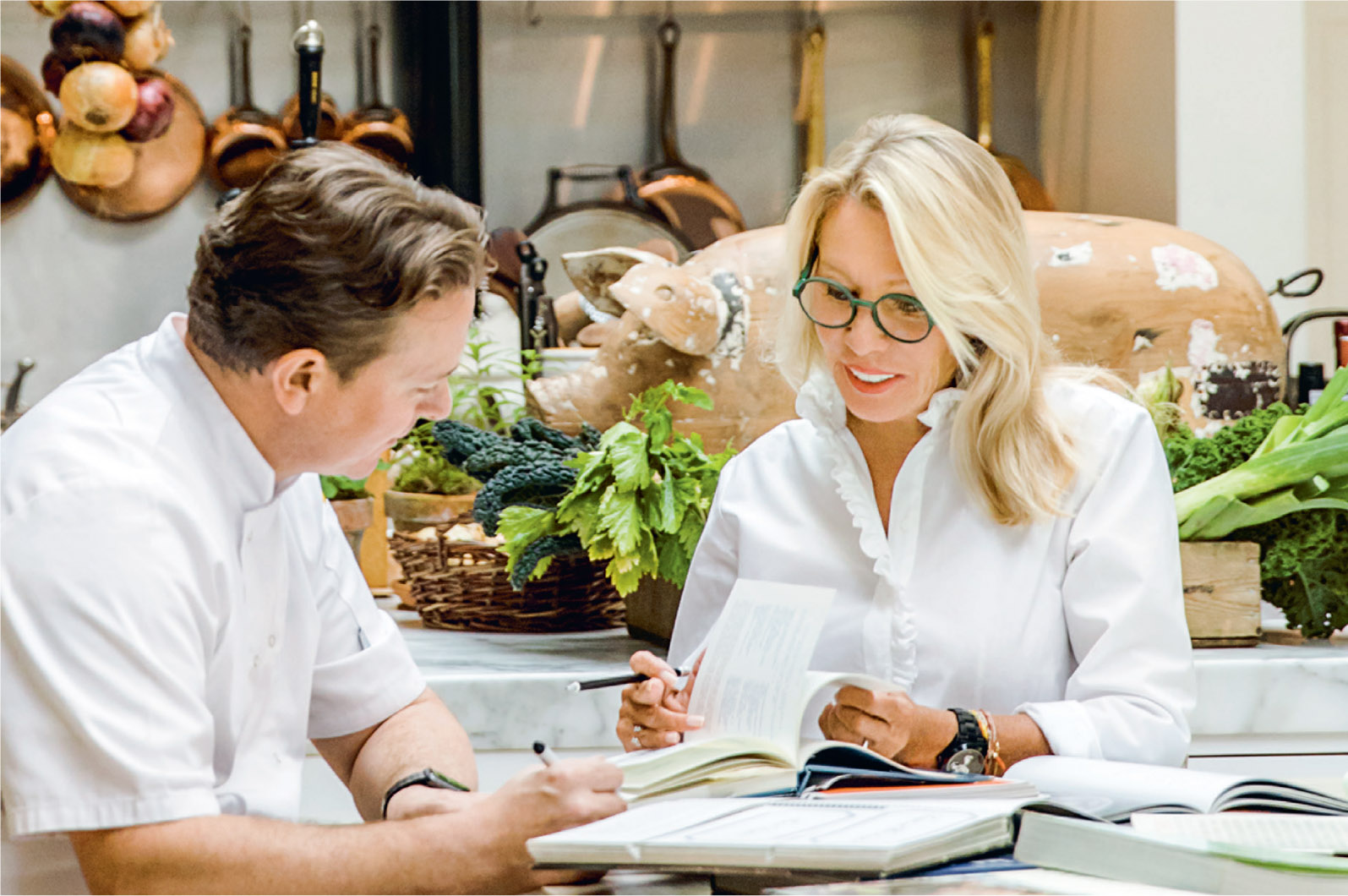
The first edition of this book was published in 2013, and while a lot has changed at Daylesford since then, and the farm has grown and evolved; in a way much remains the same. The messages that we were trying to convey with that first book to celebrate seasonal ingredients and to eat in a way that feels nourishing and balanced for you and for the planet are as relevant and important today as they were then. And the philosophy and principles on which Daylesford was founded continue to drive and inform everything that we do: to farm and produce seasonal, sustainable, organic food; to nurture the soil and the land that we work here; to live in harmony with natures cycles; and to try to help and encourage others to live a little more consciously, mindful of their own impact on the health of the earth.
Of course, the world has moved on and changed since then too. The appetite for everything that we have been talking about has also increased and its been heartening and encouraging to witness the evolution of the conversations around sustainable living and the accompanying shifts in mindset and behaviour. Acts such as shunning plastic bags, opting for a reusable container and trying to address the worlds crippling food waste problem are just some of the many things that are now commonplace behaviours and they are just the tip of the iceberg. Creative and inspiring endeavours are being undertaken by individuals and businesses around the world to try to tackle the climate emergency and help slow the rate at which the earths temperature is rising. Every day I am encouraged and inspired by the voices of the younger generation. The urgency of the actions taken by young activists bring into sharp relief the state of the crisis we are in and remind us all that we cannot sit by and let this happen. Their collective voices fill me with enormous hope and make me proud to think that what we do here at Daylesford may have played a small part in the swell of that movement.
Anybody who has read my previous book Nurture will be familiar with the story of why and how I started farming organically at Daylesford and will know that I really didnt mean for it to have grown as it has; one thing just led to another. Even its beginning came about after a series of chance encounters. The first happened when we were living and farming at Wootton in Staffordshire. It was the late 1970s; I had not long given birth to my eldest daughter Alice and I was in the garden, pushing her around in her pram. We went to look at the roses I had planted just a few days earlier only to find that they were wilting. Like most other farms at this time we had big fields because all the hedgerows had been pulled out to free up space. I spoke to the farmer next door who explained that farms were being sprayed with Roundup. I didnt even know what Roundup was, but I quickly learned that it was a very powerful herbicide and that the toxins had been carried in the air from the fields and had caused my roses to wilt. As a new mother, I was frightened and horrified, and I knew instantly that we couldnt carry on farming as we were, harming the earth in this way it wasnt right for the health of my children and it wasnt right for nature and the land.
Not long afterwards I was at an agricultural show where an organic farmer had a small tent. The organic movement was quite a small, niche thing in those days, but I went inside and spoke to the farmer for a few hours. On the way home I remember saying to my husband, We cant carry on farming as we are.

